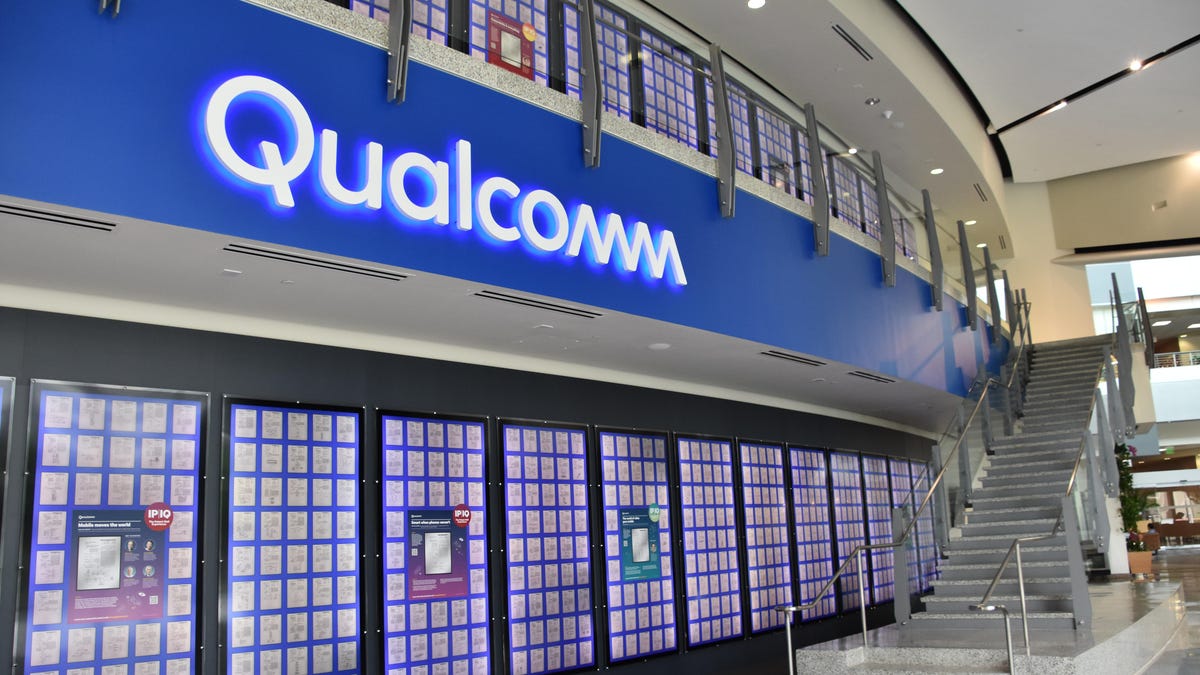Qualcomm must license its chip tech to competitors, judge rules
Judge Lucy Koh on Tuesday granted the US Federal Trade Commission's motion in its suit against Qualcomm.

Qualcomm's headquarters in San Diego.
Qualcomm has to license its wireless chip patents to its competitors, a judge ruled Tuesday.
District Court Judge Lucy Koh granted the US Federal Trade Commission's motion for partial summary judgment in its suit against Qualcomm. The FTC had sought a ruling that declared "two industry agreements obligate Qualcomm to license its essential patents to competing modem chip suppliers." Koh agreed with the motion and on Tuesday said Qualcomm has to give rivals like Intel access to its technology.
"Undisputed evidence in Qualcomm's own documents demonstrates that a modem chip is a core component of the cellular handset, which only underscores how a [standard essential patent] license to supply modem chips is for the purpose of practicing or implementing cellular standards and why Qualcomm cannot discriminate against modem chip suppliers," Koh wrote.
Qualcomm didn't immediately respond to a request for comment.
The ruling deals a blow to Qualcomm, which has been defending its licensing practices in courts around the globe.
Qualcomm is the world's biggest provider of mobile chips, and it has created technology that's essential for connecting phones to cellular networks. The company derives a significant portion of its revenue from licensing those inventions to hundreds of device makers, with the fee based on the value of the phone, not the components. Because Qualcomm owns patents related to 3G and 4G phones -- as well as other features like software -- any handset maker building a device that connects to the newer networks has to pay it a licensing fee, even if they don't use Qualcomm's chips.
Qualcomm has been facing legal battles all over the world over how it licenses its wireless technology. That includes a fight against its former major customer, Apple, and against regulators in South Korea and China. In the US, the FTC early last year accused Qualcomm of maintaining a monopoly that extracted high royalty fees and weakened competition.
The FTC's suit against Qualcomm is scheduled to go to trial next year. The FTC and Qualcomm last month asked Koh to delay her ruling so they could hold settlement talks. Instead, she issued her ruling Tuesday.
5G is your next big upgrade: Everything you need to know about the 5G revolution.
NASA turns 60: The space agency has taken humanity farther than anyone else, and it has plans to go further.

